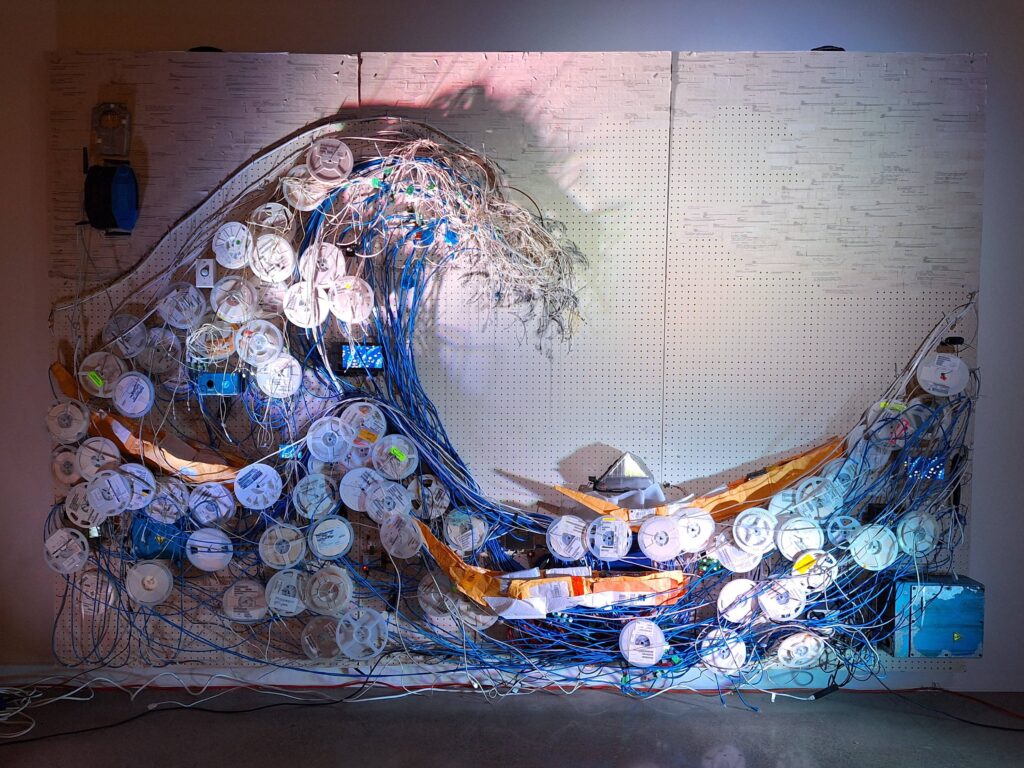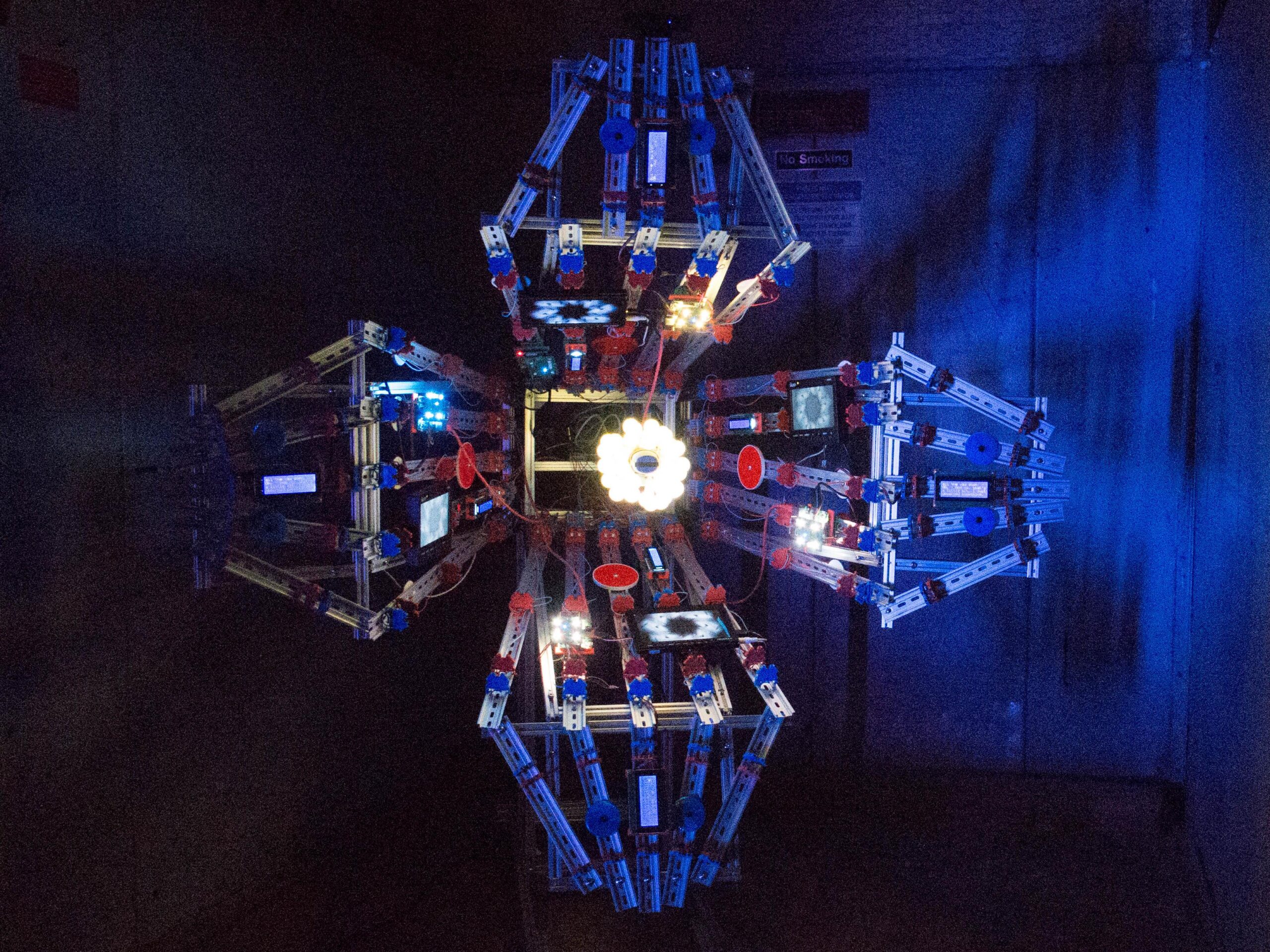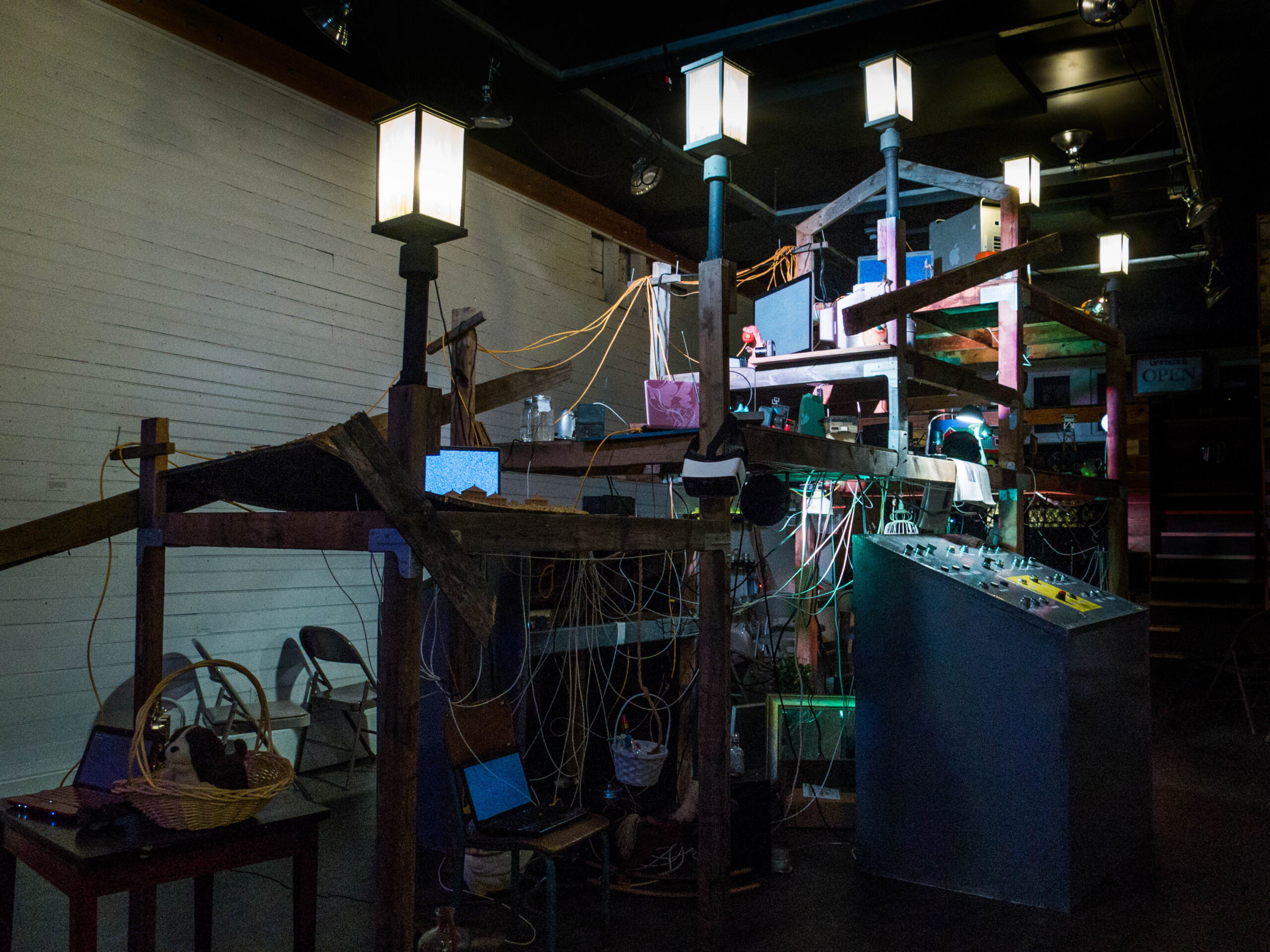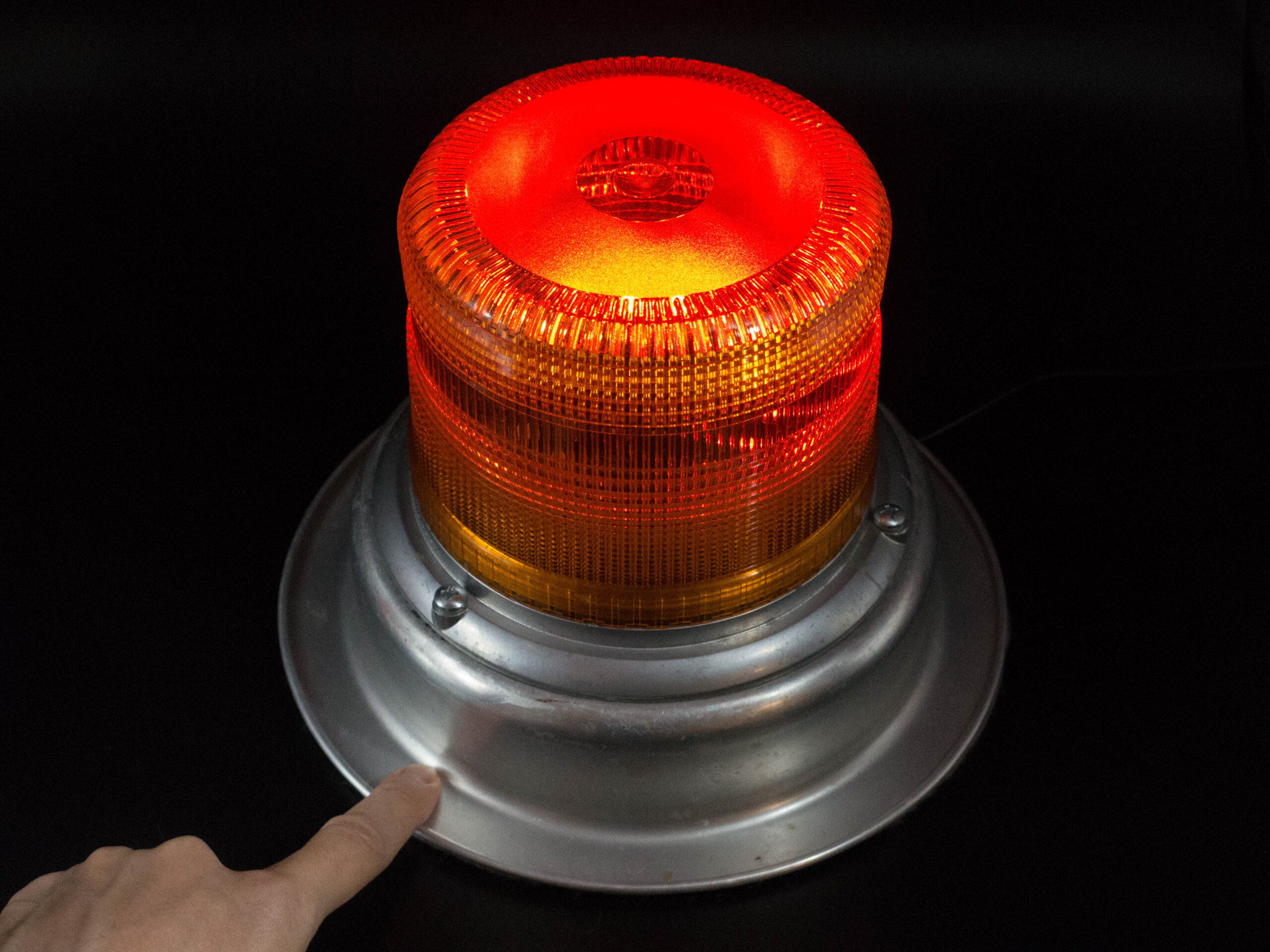
When Chris Combs worked as a product manager for Washingtonian magazine in 2016, he questioned the ethics of collaborating with certain advertisers—namely those that surveilled visitors to the magazine’s website. “Are we perpetuating data privacy problems for hundreds of thousands of website visitors in exchange for a revenue stream?” he wondered. Five years ago, Combs, a Corcoran School of Arts graduate and former photo editor at National Geographic, began exploring the ramifications of this quandary through art, returning to a childhood love of robotics to create multimedia installations that critique the way companies mine our digital data.
In his 2023 multimedia piece Pollination, Combs uses cameras, screens, and microphones arranged in the shape of a flower—to juxtapose the “invisible data everywhere” with “pollen being emitted by plants.” The surveillance devices record viewers faces, distorting them as they gaze at the installation. Another piece, Allegheny Data Company, which was displayed at the Gradient Project Space gallery in Thomas, West Virginia, is modeled after the Davis Coal & Coke Company tipple—a structure used by miners to load coal into railcars during the first half of the 20th century, the height of the region’s mining boom. “I covered [the structure] with consumer electronics”—such as Ethernet cables, laptops, and virtual reality headsets—“to address this idea that data mining is just as extractive as coal [mining], but on a much larger scale,” he says. Combs hopes his work will inspire viewers to reflect on how technology has changed the world and how we experience it. “When you buy a product these days,” he says, “you become a product.”




